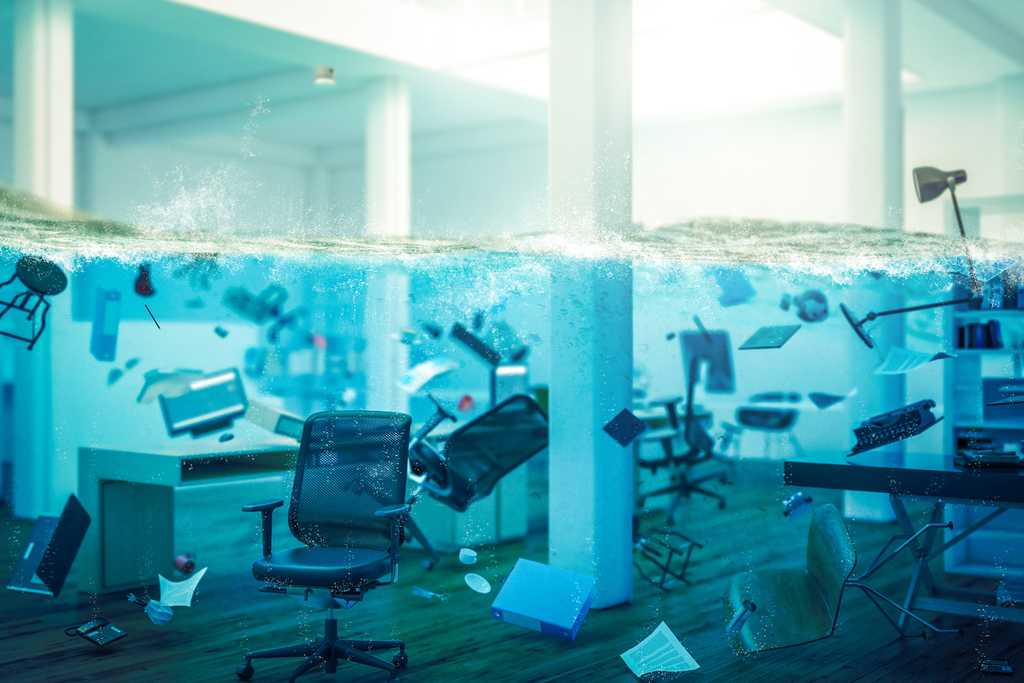As a business owner, having certain types of insurance can provide valuable financial protection in the event of a third-party lawsuit or property damage claim. Some insurance policies may even be required if you want to lease a commercial office space or apply for a business loan, for example.
If you own or rent a physical office space or a retail storefront, one of the most important insurance policies that you should consider adding to your portfolio is business hazard insurance. In this guide, we’ll explain what business hazard insurance covers, how it works, and how much a typical policy costs.
What is business hazard insurance?
Business hazard insurance is a type of commercial insurance that protects the physical building—whether it’s owned or rented—that your company operates in. This policy also covers the business equipment that is essential to your company’s daily operations. Depending on which insurance company you work with, business hazard insurance may also be called business property insurance.
Business hazard insurance is not typically sold as a standalone policy. More commonly, this policy is included when you buy commercial property insurance. You can also get business hazard insurance as part of a business owner’s policy (BOP), which is a bundle of general liability insurance and commercial property coverage.
What does business hazard insurance cover?
If the building your business operates in gets damaged, or your business equipment gets destroyed in a “covered peril” (an event the insurance company agrees to pay you for if you file a claim), your business hazard insurance will pay for the repairs or replacements, up to your policy’s limit.
If you're thinking about getting business hazard insurance, it’s important to know that this type of insurance does not cover any incident you might face as a business owner. Every business hazard insurance policy is unique, but there are a handful of perils that are usually covered under most policies. These include incidents, such as:
- Natural disasters, like hurricanes and tornadoes
- Fire
- Smoke damage
- Theft
- Vandalism
- Blizzards
- Damage from freezing and ice
- Hail and lightning damage
- Explosions
- Damage caused by planes and cars
- Sudden and accidental water damage
When you purchase a business hazard insurance policy, you’ll want to carefully review the fine print. It’s a good idea to speak with an agent and have them walk you through the specifics of your coverage. This can help you avoid unexpected surprises if you ever need to use your coverage and file a claim.
In addition, you may notice that certain causes of damage, like floods and earthquakes, aren’t covered by your policy. Floods and earthquakes are almost never included as covered perils in standard insurance policies. If your business is located in a high-risk flood or earthquake area, you should consider purchasing a separate flood or earthquake insurance policy.
How much does business hazard insurance cost?
Like with any type of commercial insurance, the cost of business hazard insurance is different for every company. It depends on a variety of factors, including:
- The value of your business equipment
- The location of your business
- The coverage limits you select
- Your business’s insurance claim history
- Your insurance company
The cost of your business hazard insurance policy will also depend on whether you choose an actual cash value (ACV) or replacement cost value (RCV) policy.
With an ACV policy, depreciation gets subtracted from your claim payout. So, for example, if all of your office furniture was destroyed in a fire, you would be compensated for the original value of the furniture, minus each item’s depreciation (which is based on age).
With an RCV policy, claim payouts do not reflect depreciation, which means your insurance company gives you a larger payment to replace the damaged property. As a result, RCV policies usually have more expensive premiums than ACV policies.
Business hazard insurance and homeowners insurance
If you own a home-based business, you might assume that your homeowners insurance policy provides sufficient coverage for your business equipment. However, regular home insurance policies usually provide limited protection for business equipment in your house. This can leave you financially vulnerable in the event of a natural disaster or other incident.
While every home insurance policy is different, most provide a small amount of coverage for business equipment (around $2,500 or less, in many cases). So, for instance, if you had $10,000 of business equipment that got destroyed in your house, your homeowners insurance policy would likely only cover a small portion, leaving you to pay the rest out-of-pocket.
In addition, home insurance will probably not cover certain things that business hazard insurance would, such as data loss or damaged business records. If you run a business out of your home, you can check your policy details to see exactly what is and isn’t covered, and how much coverage your policy provides for business equipment.
All of that is to say, if you run a home-based business, business hazard insurance is still a smart investment. You should not expect your basic home insurance policy to provide enough protection for your business equipment unless you have the option to add an endorsement for additional business property coverage (which not all insurance carriers offer).

